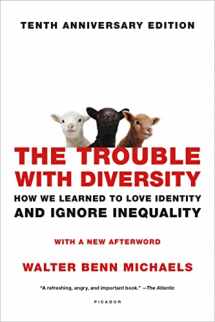
The Trouble with Diversity: How We Learned to Love Identity and Ignore Inequality
Book details
Summary
Description
“Michaels has written a bracing polemic that should quicken the debate over what diversity really means, or should mean, in academia and beyond.”―The New York Review of Books
If there’s one thing Americans agree on, it’s the value of diversity. Our corporations vie for slots in the Diversity Top 50, our universities brag about minority recruiting, and every month is Somebody’s History Month. But in this “eloquent” (Chicago Tribune) and “captivating” (Los Angeles Times) book, Walter Benn Michaels argues that our enthusiastic celebration of “difference” masks our neglect of America’s vast and growing economic divide.
When it was first published in 2006, The Trouble with Diversity provoked a firestorm of praise and condemnation―not only hailed as “genius” (The Economist), “cogent” (The New Yorker), and “impossible to disagree with” (The Washington Post) it was excoriated as a “wildly implausible” product of “the ‘shock and awe’ school of political argument” (Slate) and “Seething, misplaced, amnesiac resentment” (The Nation). Now, a decade later, Michaels offers a new afterword on how our regime of equal-opportunity exploitation has only intensified. Magnificently iconoclastic, he demonstrates that commitments to diversity fail to offer a premise for social justice and in fact legitimize the economic forces that drive inequality rather than offering a resistance or even a critique. Most importantly, he makes the case that we should pay less attention to the illusory distinction of culture, and more attention to the real discrepancies of class and wealth.


We would LOVE it if you could help us and other readers by reviewing the book
Book review



